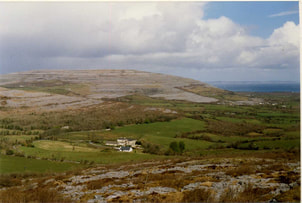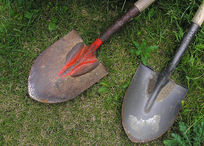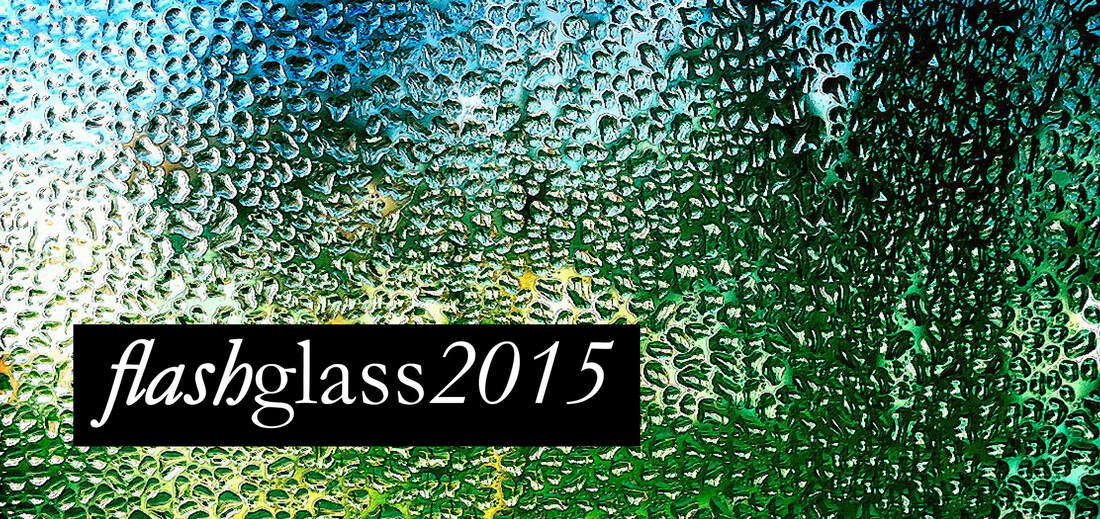|
We are pleased to present our first flashglass anthology! Comprised of all flash works originally published online at rowanglassworks.org in 2015, this anthology is available for online viewing, digital download, and for purchase in print.
Thanks to all our contributors for allowing us to present their work this year!
0 Comments
 “People forget years and remember moments.” - Ann Beattie, “Snow” Of everything, I remember the last time I visited you at the toy store. It was a Friday, early February, the day it really started to snow in earnest; and since I wasn’t working Fridays then, I came downtown to keep you company. The city had already fled: traffic out of town at a standstill, high beams on, wipers going; Main Street as empty as a stage. The afternoon sprawled before us. One o’clock, two o’clock, three o’clock: customer-less hour after customer-less hour crept by, so we drifted through aisles of bouncy balls and jigsaw puzzles and deluxe backgammon sets, board games with names like Gassy Gus and Gooey Louie. You actually sell this shit? I said incredulously, game in hand, and you laughed and said, what’s more, people actually buy it. Meanwhile, the snow outside came down in curtains. It stacked on top of cars, buried curbs, drifted against the door, and it wasn’t until I stepped outside to feed the meter that I realized that every other store in sight had closed down and slipped away to the warmth of furnaces and fireplaces. I went back inside and said, look at this, and we stepped out as an ambulance slid by at ten miles an hour, lights flashing a silent symphony of reds and blues against the white canvas of the city. It rounded a corner and vanished; the snow twisted in the wind like someone shaking out a sheet and covered the tracks with ease. And because it felt like nothing was quite real that day, you locked the store and we wandered off into the padded afternoon. Street after street: bars, thrift stores, movie theaters, all boarded up, desolate. There was a kind of freedom in it. Snow nestled in your hair; silence nestled in every alley. There in the empty streets, I felt closer to you than I had in a long time. Maybe you remember it differently. Maybe you remember only the cold, how the city had seemed -- for weeks -- to be electrified: doorknobs, handrails, water fountains, all treacherous. Maybe the tips of your ears had already begun to sting, or your coat had a hole or had been forgotten behind in the store. Maybe the whole time you were searching for another face, a set of footprints in the snow, a cough or a car horn, because there was something eerie about the lack of sound: a city on mute, where even the ambulances didn’t turn on their sirens. Maybe there was a weight. Maybe, when you recall that aimless afternoon spent among piles of action figures and stuffed animals, you remember not ducking behind towering displays of yo-yos and shooting toy arrows at each other, but the spaces in our conversation: the cramped, uneasy silence between us. I’m worried we’re going stale, you said to me not long after. Past our expiration date. Maybe we’ve come as far as we can. We’re not the people we used to be. But I barely heard you, because I kept trying to picture us as bread gone hard, or milk gone sour, and instead I just saw seeds struggling up through frost-bitten earth. Look back, I wanted to say. We remember beginnings, not endings. We remember the quiet beauty of the first kiss, not the banality of the last. We forget the dead air, the long drives with nothing to talk about, the arguments about the future, and we hold on to trinkets of memory: blues dancing at one in the morning, our bodies in slow motion; washing you in the shower, water in streams down your back, my fingers drawing lines from freckle to freckle; wandering the empty, muffled streets of our city, snow whipping around, you burrowed into my arm for warmth. Look back. But maybe you don’t remember that day at all. Maybe all you remember is a day when it started to snow and didn’t stop for a week. Maybe everything else about that day has gone, melted away, and all that remains when you close your eyes is a world swallowed in snow, lost beneath a billowing, unending blanket of white.  Will Preston was born in Virginia and has since lived in Oregon, England, and the Netherlands. He has written extensively on film, travel, music, and history, and is currently pursuing an MFA in Creative Writing at the University of British Columbia. This is his first publication.  I am a hunter, she says. And fires wild into the fleeing geese. The wide blast of the gun breaks into the spring of her shoulder. And she feels it in the bones of her chest. The spreading pellets in the sky like fistfuls of rain. Later, he drives and she stares out the window at the running fields of twisted grass and the thin Ash woods of upstate. A natural hunting blind. He spots dried mud under his fingernails while making a slow turn, from one narrow road to another. He has the urge, like the urge to drink, to pull over there, in the grass, and pick the mud out with his slim folding knife, which he takes always into the wild, the grasses, but has never used. He resists. Did you have fun? he says. Wish I'd hit something. That isn't so bad, he says. He thinks about broad sky, and their thunder in it. Shrieking calls. Loud and without meaning. Plunging into the sky as into a block of solid blue ice. And the road is as narrow as a fine line drawn with a pen. What's worse? she says. She's watching the trees for movement. A bird. A rabbit. She imagines her dinner depends on it. Her life, and the life of everyone she knows. She smells rich soil, river chalk and red clay. And it all clings to their rubber overalls balled up in the trunk. You hit something, he says. He is thinking about clothes small enough to fit between the pages of a book. And a person small enough to fit in his hand. You hurt it. Maybe killed it. You see it struggle. Fall. You watch it fall. You watch closely. It's wing is broken. But when you go looking, and you look for a long time, you never find a body. She doesn't respond. She is thinking about what it means to provide, and the feel of the gun, cracking in her hands with all the solid presence of a newborn's first cry. Outside the window is a place as wild as any she has ever seen. Shadows as deep as pools. Trees as crooked and smooth as broken necks. She sets her eyes free, uncaged animals, and they claw at the landscape as if they want to destroy it. Something unfamiliar plays on the radio, drifting static as they move from the edge of one place to the edge of another, and she is about to speak, when, just above the trees, the jagged line of the sky, she spots a shutter of movement. The shutter of a body, and later she will swear on it, and it will become more clear and vivid in her memory. A naked man, tall and wet with long, loose limbs and a flabby chest, thin as a cigarette. Weakly cradling a small, rounded stomach. And his broad, crooked gray wings, bent out of his back, are beating hard, beating desperate, but failing. His whole, strange body knocking painfully against the glass sheet of the sky like a broken hand gathered into a fist. A shape she recognizes.  Ryan Row started out by publishing under the pen name Alan Wor, but now writes under his own name. His work has been previously published, or is forthcoming, in The Blueshift Journal, 94 Creations, Danse Macabre, and elsewhere. He is currently studying Creative Writing at San Francisco State University. Find him online at: ryanrow.com  It was bare-foot perfection and sweet, salty, crunchy laughter. It was dusty road-side stands and juicy, strawberry days. It evoked perpetual summer. Then it became an island of exclusivity and long-sold hippy dreams. It was Martha's Vineyard. Things always happen in between. The first time we were there, I knew I would marry him. The second time we were there, the weather held a knife-edge of change. The Atlantic brought heavy fog and then whipped it away. We were there for another wedding. Guests spilled onto the street. Men hugged and patted each other on the back. They lit cigars. Women in heels tottered and kissed, kissed the air. So good to see you. How are the kids? How is the job? Lovely, just lovely. Pat, pat, kiss kiss. Voices cascaded, one after another like waves on the surrounding shore. David leaned against a rusty street sign, the red octagon—stop—a warning neither of us would heed. I will call him David, because the name means beloved. David, in history, was a king, a poet, a warrior. David, in this story, has a peace symbol tattooed on his shoulder. David was not the man I had married. He smiled at me, took my hand; I kissed his cheek. The voices went on around us, and we looked at each other through damp, cold fog. The crowd started to move from the street towards the beach. Side by side, we passed a low, white picket fence, along a bricked path flanked with blue hydrangeas. I did not look for my husband. I nodded at knots of people. I sneezed at the smell of perfume. I preferred the scent of bodies, the scent of sweat, the scent of the sea. The crowd moved slowly like a school of dead fish floating in the tide, bumping along in the ocean beyond. In the beginning, my husband and I had rented a shack near the beach. The shack had become real estate with an ocean view. We had become people at a wedding on Martha’s Vineyard. David sighed, his shoulder brushed against mine. His head dipped towards mine. Already I was aware of the proximity between our shoulders, between our mouths, between our hands. My feet sank into the beach. I bent down and removed my own heels. Cold sand seeped into my stockings. I shivered, my thin blue silk inadequate. David removed his jacket and placed it around me. Warmth built. Waves foamed. People turned towards the path. A young girl, golden ringlets blowing, scattered rose petals from a wicker basket. The bride followed her, barefoot, shivering, her dress billowed white behind her. She approached her groom. They stood side by side. They mouthed words I could not hear. I could hear the pounding of the surf on the shore, the pounding of my pulse. I could hear the sound of before. I could almost hear the sound of after. In between, there was a marriage.
 Cheryl's mother didn't call her. Instead she sent an email. Cheryl didn't know her mother emailed. Did she buy a computer? Probably went to the library. Cheryl closed her eyes and imagined the endless line at the library while her mother demanded the librarian's attention, taking up the allocated time of two or three people, just to get what she wanted. Her mother always got what she wanted. Cheryl could see it now. The subject of the email was This is from your mother. Looking back, it was worse than any virus, worse than any malware a Korean psychopath could have dreamed up. Your father, said the email, is back in my life. After fifty years! Do you believe it! The wedding's Saturday at noon. St. Christopher's. Hope you can make it. Love, Mom Cheryl was sixty years old. The last time she saw her father she was ten. They were in the kitchen of the only house Cheryl ever lived in. White shutters. Blue paint. A calendar with kittens on the wall. She remembered her mother crying, her father screaming, chairs being upended. A vase with limp flowers crashed to the floor. Cheryl hid in the corner with the cat. Then the front door slammed shut and he was gone. Every day when she came home from school she expected him back. She'd walk from the bus stop hoping and not hoping, fearing and not fearing her father's return. Past the O'Malley's house. Then the Lopez's. Looping the corner she'd swipe her hand over the big blue mailbox. Then she'd kick a pebble and watch the pebble bump along the sidewalk. Right. Left. Stop. Then again. Right. Left. Stop. Finally lifting her head and seeing the empty driveway, relieved and not relieved at the same time. For fifty years not a birthday card, not a Christmas present. Her father's name became a curse word. If the disposal was clogged, he was the grit in the drain. He was the misplaced key, the swallowed pit, the filthy puddle that ruined their shoes. The incubus. The bogeyman. He was bad luck in a suit. A year went by. They moved to the apartment on Kendall-who could afford a house-and lived paycheck to paycheck. Her mother went back to the community college and learned bookkeeping. Each night when she came home her lipstick was smeared, a button undone. The boss had me stay late, she told Cheryl. Each year a different boss. As soon as she could, Cheryl got her own apartment. She adopted a cat. She wallpapered the kitchen. She bought fresh flowers and placed them in a vase. But like the pattern on the walls, her life repeated itself. Cat. Flowers. Tears. Cat. Flowers. Tears. When her children were born, she told them that their fathers were dead. It was kinder that way. They could skip the sidewalks unencumbered, their chins high. Dear Mom, Glad to know you're happy. Then she pressed delete.  Born in Brooklyn, raised in Miami, and educated at the University of Michigan, Marlene Olin recently completed her first novel. Her short stories have been featured or are forthcoming in publications such as Emrys Journal, upstreet Magazine, Steam Ticket, Vine Leaves, Crack the Spine, Poetica, Edge, Meat for Tea, The Broken Plate and The Saturday Evening Post online. She is a contributing editor at Arcadia magazine.  Sid slid through the crowd ‐ over the dirt path of the market ‐ with a girl he had by the arm. First, to find a sucker. The new mother with a loose grip on her clutch. The target wore a flower‐print dress and wicker sandals. She was begging for it. Practically, she wasn’t the beggar.She was the new mother. Old bag with a new clutch. He made off with it. Initials were printed in gold color on the faux leather, hers along with the initials of some romantic type; N.M. + R.T. Inside the clutch were two fives. Sid handed one to the girl. He took another and said, “we’ll split this one,” before he tore it in half. Now to the table where there sat some know‐it‐all type with ratty books for sale. Sid wanted the biggest one. Sid inquired. He talked the man down because the book was so ratty. “Those stories have been retold often,” the know‐it‐all said. Sid knocked over the whole stack, and offered to help the man collect them. He then stole the ratty old book ‐ Arabian Nights ‐ and left. “What’s that for?” the girl asked. “Fire starter.” “You like makeup?” Sid asked as they walked by the Mary Kay lady. He dropped vanishing cream into the clutch the the girl now carried. An officer, with three missing item descriptions and two suspects, attracted Sid’s attention. “Show time,” Sid said. He lit a match and held it to the book. It caught and was tossed in the trash. The law man became the fire man. The girl’s parents found their daughter, and asked about her accessories. The girl turned to Sid, who slipped away just in time. Sid sauntered toward home and casually flipped a classical Greek coin he had made disappear. From between two chicken shacks a jewelry maker called to Sid. “I can tell that you are a man of taste.” She wanted to know what he thought of her work. “Too easy,” he thought. His fingers grazed over the jewels. He dropped the largest stone into his sleeve. The jewelry maker grabbed his hand and turned it palm‐up. He laughed, there was nothing there, but she worked her bony finger in his hand and then said to him, “You’re playing the part, don’t you see.” “Excuse me?” “We are all predestined for something. I was compelled to read your place in our story.” “Are you supposed to be some fortune‐teller? You want a quarter?” “What are you supposed to be, young man?” “Sid.” “I know you by a less dynamic title. You rely on your hands. In the fingers you are dealt luck, in the palm, destiny. You are not free to choose what you take. You must take these things.Your part in the story is necessary.” “You sound like a hack to me! A story‐teller, not a fortune‐teller.” “This isn't for you to interpret. You are not a hero in this old story, thief." Chase White lives in Athens, Ga with his boyfriend of many years. He spends his time outside, writing and gardening. His best work happens to be under dirt smudges. Fortunately, some of it has been recovered, including a story forthcoming in Labello Press’ latest anthology. You can keep up with him on Twitter at @MotherNatsSon.
 I didn’t expect them, thousands of ochre blooms spread across the hills of the village. Neither did I imagine the houses, eerily quiet streets, and gravestones flooding the main square. Leaving our rented car in the road, we trudge through weeds and turf, struggling through the bulging cemetery. A narrow creek flows loud as drums above the barren brass of the sky, the reedy grass, an echoing harmony of birds. We find a bar at Scott’s Grocery behind a wall of shelves and cooler stocked sparingly with rough brown bread, fresh cheese,and milk. A hallway leads to a dim room where men lean over pints of Guinness dressed in overalls, wool hats tilted down, boots wet with earth and dew. We drink whiskey and beer, observing the unlit fireplace and peeling linoleum floor. My father weaves our history: a man struck by a train; a woman taken by strangers across an ocean; a child baptized in Ireland; a family rooted in Scranton, Pennsylvania. Outside, the sun inches below the hills. A boy kicks a ball against the grocery’s side wall. We speak to him as we leave, warmed somehow by the colorless, staid company of the bar. In the morning we’ll wake early to hot plates of bacon and eggs, black pudding, and fried potatoes in the white tablecloth dining room of our bed and breakfast. We’ll drink coffee and tea, smear black currant on toast, and peruse the news of County Mayo, waiting for a new day to begin.  Kevin O'Connor received his B.A. from Johns Hopkins and his M.F.A. from Old Dominion University. He has published writing in Slant, Anderbo, The Fourth River, Bayou, Bluestem, Literary Juice, The Tulane Review, and The Pinch. He lives in Buffalo.  Rich stood by the tree, his hand gripped to the high end of the trunk. His gray tennis shoe balanced on the shoulder of the shovel’s blade, its face stabbed between roots. His father Stanley labored beside him, bent forward at a right angle, his shovel held in both hands childishly close to the business end. He sliced the metal through the dirt, the repetition like the sound of the earth breathing. “I asked you out here to help me.” Stanley complained. “You asked me nothing.” Rich said, letting his shoe leave the shovel and plant onto the dirt. “I came out here to make sure you don't wander off into the street.” Stanley stopped his digging. Still bent over, he looked up to his son caught in an absent glare. “I’m not the one always lost in space.” Stanley started. “I’ve known this home since I was a child. Hell, it’s why I’m digging.” “You’re digging because you’ve grown senile and you need something to fill the gap.” “What gap?” “Never mind.” Stanley went back to his work. The shovel only picked up enough dirt to fill a sandwich bag, but piled on the patchy grass near the sidewalk, he had himself a mound calf-high. “My father bought this place when I was three years old.” Stanley began. “I know. I know. Bought it before the town had a single stoplight. Bought it before Main was Main and before the factories came and went. Everyone made fun, until LIFE magazine named it a top 25 town to raise a family. Way back in ‘63” “Right around the time you were coming up.” Stanley added. “We lived in Fresno then, pop.” The shovel stopped and Stanley shrugged. “Guess so.” “You know pop, you still live here, and the neighbors are going to wonder what you’re doing.” “That’s why I thought you’d help. It’d go a lot faster if there were two shovels moving.” He stopped his work and clanked his shovel against his son’s. Rich lifted the blade from its shallow earthen pocket and stabbed it between roots on the other side of the tree. “When I hid them,” Stanley started. “I thought of it as a game, but as time passed, it became an investment. You’ll be shocked, boy-o. Some as big as quail eggs.” Rich sighed. “There are no diamonds, dad. It’s a false memory, or a dream masked as memory. Regardless, there’s nothing to dig up, just the tree and its roots.” Stanley stopped his shovel and stood almost strait. “You don’t know. You think you do, but you don't.” Rich stood silent. Stanley eyed him aggressively. “I buried them.” He shouted, pinning his thumb his chest. “I buried them, and they’re here.” He lifted the shovel and stuck the blade downward with all his might and struck a root. The reverberation sprung his rickety hand open and widened his eyes. The shovel fell from his hand, its wood shaft bounced to rest on the sidewalk. Stanley’s head trembled staring through his son at his pain. Tears filled his eyes. Rich bent down to pick up the shovel. “Leave it.” Stanley snapped, freezing Rich mid crouch. “Don't help me, if you’re not going to help me.” Stanley clenched his hand into a fist before opening it slowly, repeating the act until the movement settled the pain. A child works fiendishly on all fours. He has stolen a gardening shovel from the garage. If his father catches him, he’ll get the belt. His seven-year-old hand grips half of the tree trunk he works under. His father told him that he and the tree will grow together, but the tree seems so big already, the boy can’t imagine how he’ll catch up. He turns the garden shovel around in his hand, lifts it up over his head and begins stabbing the earth again and again, forming soft clots of dirt before tossing the little shovel aside and using his hands to form a round cradle for the diamonds.  An MFA student at CSUSB, Ruben Rodriguez writes, paints, and wastes his time at the foot of the San Bernardino Mountains. He is the fiction editor of The Great American Lit Mag. Many of his stories have been deemed fit for consumption by the likes of Reunion: The Dallas Review, TINGE, The Nassau Review, ZAUM, theNewerYork, and others. His chapbook We Do What We Want (Orange Monkey Publishing, 2015) is due out later this year. You can find him at www.rubenstuff.com.
“No, sir.” “Him?” “My father,” I say. “A few. Earlier. Not in the car. We were just...” “I got an award tonight, a medal,” Dad calls from the backseat, Pendleton blanket draped over his legs. “Hey. Why can’t he hear me?” “Just make sure he’s buckled,” the trooper says, returning my license. “Go home, chief.” Up goes the window. The trooper’s headlights disappear into the night and we’re alone again, freshly debased. Two dogs tossed in their own shit. I finger the key but don’t pull onto the road yet. My throat burns with something sour and grimy, a familiar taste – god, is it embarrassment? – and I feel ashamed. “Ho,” Dad coos. “I might as well be a little boy again.” This from the man who cracked his spine in Saipan, who grinded knives before returning to school at 42, who put his grandkids through college, who buried wives, a brother, children. “Forget him,” I say and pass back the bottle hidden under the seat. Joel Wayne is a writer and director living in Boise, Idaho. His fiction and nonfiction work has appeared in apt, AdPulp, and Salon, and his short film work has screened at the Sun Valley and Local Sightings Film Festivals. He is currently a candidate in Boise State University’s MFA program, where he also serves as an assistant editor on The Idaho Review.
|
FLASH GLASS: A MONTHLY PUBLICATION OF FLASH FICTION, PROSE POETRY, & MICRO ESSAYSCategories
All
Cover Image: "Spots"
|
|
Glassworks is a publication of Rowan University's Master of Arts in Writing 260 Victoria Street • Glassboro, New Jersey 08028 [email protected] |
All Content on this Site (c) 2024 Glassworks
|






 RSS Feed
RSS Feed
